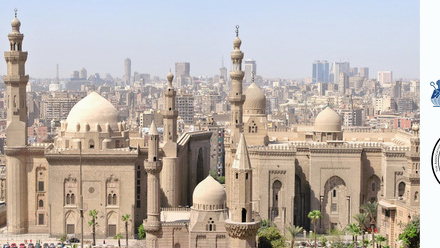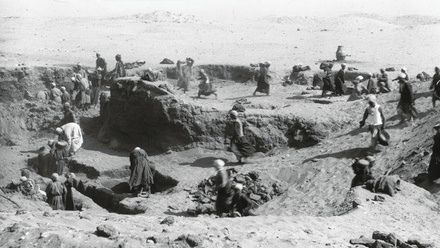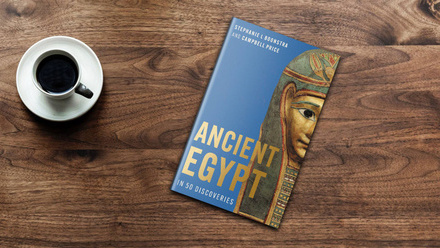The Nile through Scottish eyes
Robert Wilson's travels in Egypt and Nubia (1820–1821): a study of his artwork, journals, and artefacts at the University of Aberdeen Collections, Scotland
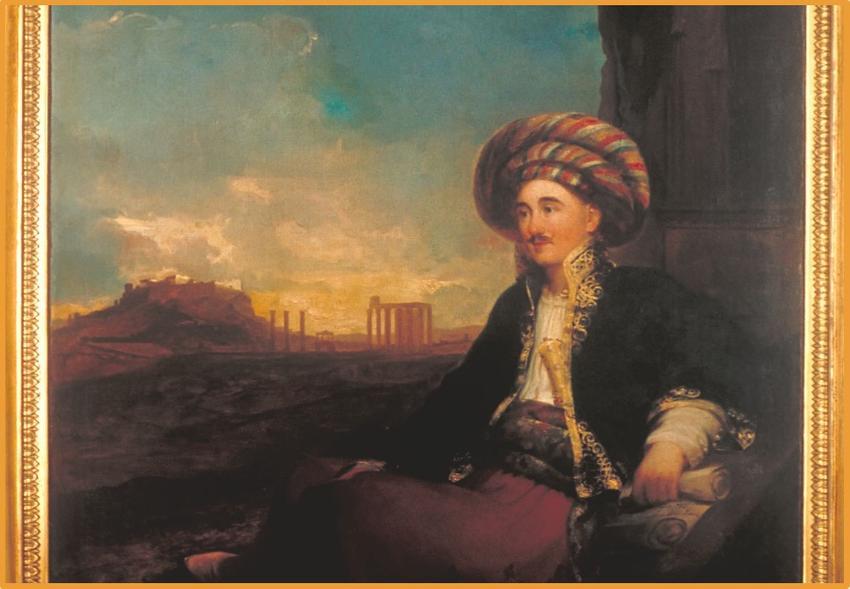
Detail of James Atkins, Robert Wilson, oil on canvas, c. 160x135cm, 1824. Catalogue number ABDUA:30553 in University of Aberdeen Collections, licensed under CC By 4.0.
Robert Wilson — early Scottish traveller and collector
This project focuses on the life and travels of Robert Wilson (1787–1871), a little-known Scottish figure and one of the most important donors to the University of Aberdeen Collections.
Born in north-east Scotland, Wilson studied at Marischal College, Aberdeen, before joining the East India Company as a ship’s surgeon. Following a short maritime career, he embarked on extensive travels through the Eastern Mediterranean to Mesopotamia, Persia, and India. Between 1824 and 1826, Wilson served as private secretary to Lord Hastings, Governor of Malta, before retiring to Morayshire, Scotland, where he spent the rest of his life aside from occasional travels in Europe. Upon his death in 1871, Wilson bequeathed his substantial collection of artefacts, manuscripts, books, and artworks to the University of Aberdeen.
Wilson’s travels in Egypt and Nubia between 1820 and 1821, in particular, produced a remarkably rich archive: a travel journal with accompanying letters, numerous watercolours and sketches, and more than 200 artefacts. Despite the scope and significance of this collection, much of it remains unstudied and largely inaccessible to the public.
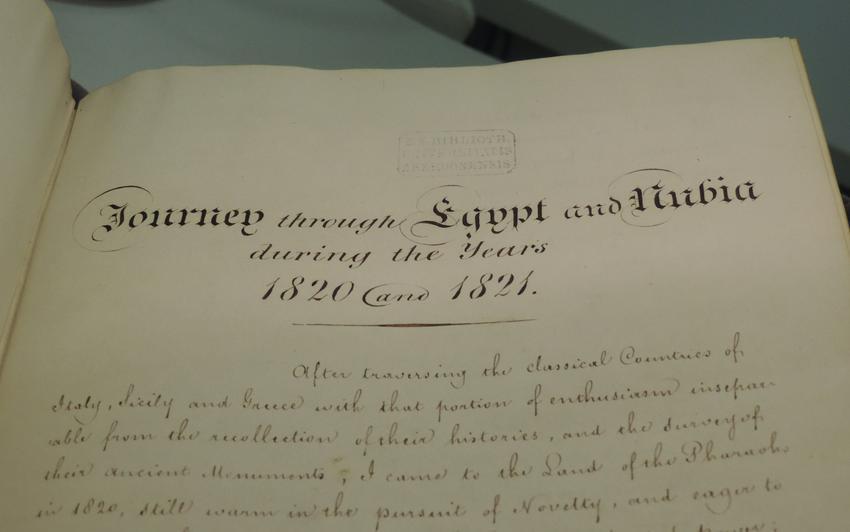
Title page of Robert Wilson’s travel journal: Egypt and Nubia (MS 415), University of Aberdeen Collections. © Marion Devigne
This project aims to illuminate some of the complex histories behind this understudied yet richly diverse early 19th-century collection. It will, for the first time, bring together Wilson’s writings, artworks, and objects in a multidisciplinary study that integrates history, archaeology, and object-based research. The research situates Wilson’s journey within the broader history of European exploration in Egypt and Nubia and pays close attention to early 19th-century collecting practices and their continuing legacies. By re-tracing Wilson’s travel itinerary, his motivations, and the histories behind his collection, the project reveals how both Egypt’s ancient and modern heritage were encountered, represented, and dispersed at the dawn of Egyptology.
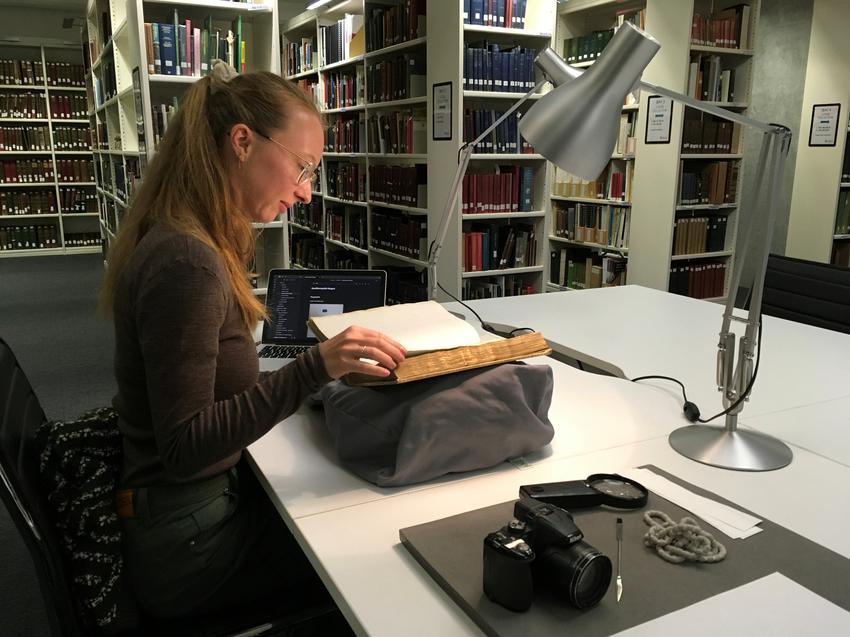
Studying Robert Wilson’s travel journal in Egypt and Nubia during a research visit to the University of Aberdeen Collections, July 2025 © Marion Devigne
Engaging with Egyptian and Nubian voices
The University of Aberdeen’s Robert Wilson collection offers a valuable resource for exploring the agency of local individuals in shaping European travellers’ experiences. A central aim of this project is to open a window onto Wilson’s interactions with local communities, where often-overlooked voices emerge through his writings, artworks, and collected artefacts. It seeks to highlight the crucial roles of guides, translators, cooks, governors, and villagers, whose knowledge and support made Wilson’s journey in Egypt and Nubia possible.
Adopting a decolonial approach, this project thus foregrounds the presence and contributions of Egyptian and Nubian communities, critically examines the provenance of Wilson’s artefacts, and offers fresh insights into Egypt’s dispersed heritage.
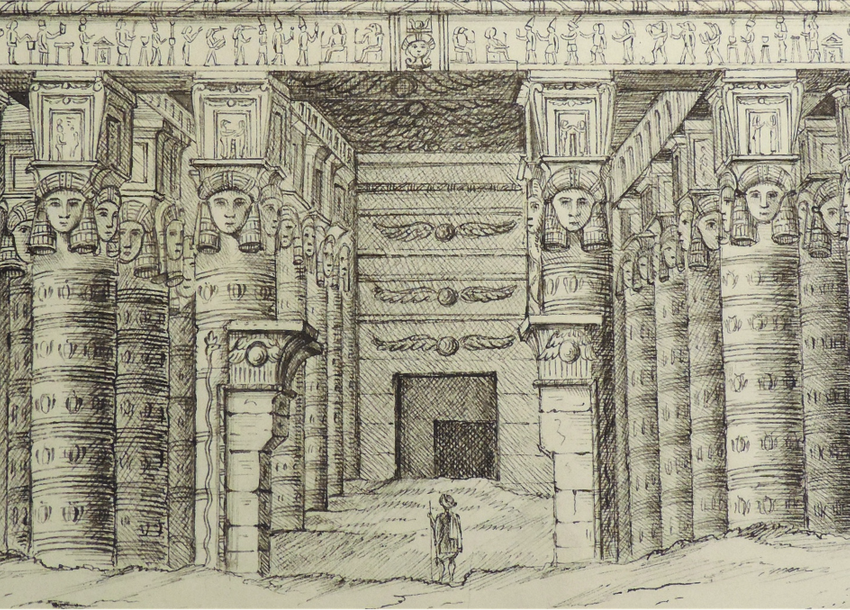
Detail of a sketch of the Temple of Dendera from Robert Wilson’s travel journal: Egypt and Nubia (MS 415), University of Aberdeen Collections, licensed under CC By 4.0.
Expanding awareness and access
This project is part of a collaboration involving historians and art historians across Scotland and Ireland, exploring diverse aspects of Robert Wilson’s life, career, and travels. Thanks to the assistance of the University Collections in facilitating access and the generous support of the Egypt Exploration Society, the Centenary Award will fund Marion’s research visits to the University Collections in Aberdeen and Egypt. It will also support a range of public and academic outreach events to expand awareness and access to the Wilson Archive in both English and Arabic.

